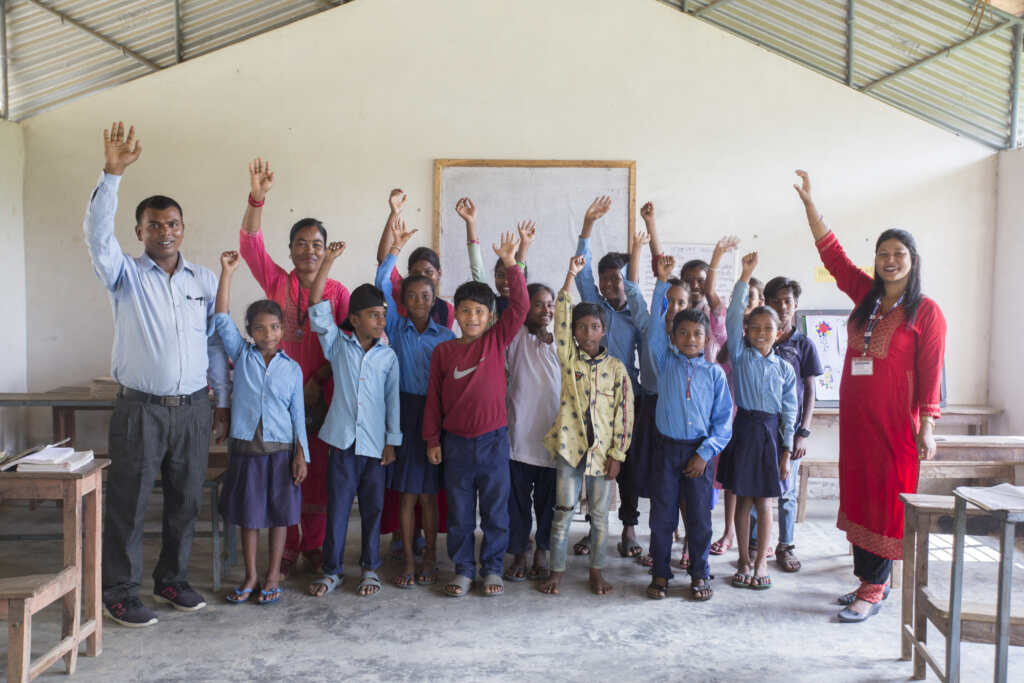
CBM Global’s work in mental health in 2022 saw us take further our aim of supporting people with psychosocial disabilities to access their rights and participate fully in community life, and facilitating better access to good quality, dignified and non-coercive mental health services. At the same time, we consciously adopted CBM Global’s deliberate approach of shifting power, both towards people with disabilities so that they can drive forward their own agenda, and by examining the relationship we have with civil society and government actors in the countries where we work.
Shifting power toward people with disabilities
We completed two major programmes across Asia and Africa, where we worked with national OPDs in nine countries to understand their priorities for organisational strengthening. A Good Practice Guide based on this co-produced work will be launched in 2023, which we will use as a basis for building our collaborative work in this area. Our ambition is to see people with psychosocial disabilities equally represented within the disability movement, and in relevant advocacy and programme spaces.
Shifting power towards our partners
We were proud to launch the BasicNeeds Network – building on a 20 year legacy of grassroots engagement in mental health, CBM Global has established a network of implementing organisations with expertise in community-based mental health work. They will themselves support others who want to start this work in similar settings, providing capacity building, mentorship and tools such as an evaluation framework and support for fundraising. CBM Global hosts the network, but decisions will be taken by members, in a new model of working which we hope will provide a new phase of expansion for BasicNeeds.
Shifting power towards global south leadership
CBM Global collaborated with the Africa Union’s health agency – Africa CDC – to develop their first 5 year NCD and Mental Health Strategy. By partnering with an important regional body like the African Union, we are able to influence the way that they fulfil their mandate, and to ensure that policies and investments in mental health service reform is well utilised and aligned to good practice in inclusive practice. This has already led to significant opportunities to engage in policy and programme work with countries and regional bodies in Africa, often with a new type of relationship, where we provide specific technical support, to programme led by local bodies.
Knowledge is power
We continue to provide technical input to the highest level of global guidance, for example, the World Health Organization’s mhGAP and QualityRights programmes. In addition, the focus of much of our work on mental health and psychosocial support (MHPSS) in emergency settings has also been in providing advisory support (through a contract with WHO) to see through the publication of guidance on inclusive MHPSS, and for similar approaches to be used in mental health aspects of Disaster Risk Reduction. With our HHoT and iDRR tools, and our Good Practice Guides, we have promoted access to practical knowledge and competencies for field-based actors to move towards more inclusive approaches to mental health in development, humanitarian response and disaster risk management. Finally, we have led new approaches to integrating mental health into NTD care, with research published in this area strengthening evidence and advocacy, and our leadership of a global consortium collaborating effectively for reform (see Case Study).
In addition to this outward-looking work, we also completed the process of consulting closely with the Country Teams and other parts of the Federation to understand the impact of their work on their own mental wellbeing. Prompted by COVID-19, but also driven by our values, we are now applying this learning to the culture and systems in the organisation to make sure CBM Global is a positive place for people to work, where they can thrive and be protected from the stresses associated with the development and humanitarian work. Linked with this, we have also strengthened our community of practice in mental health, enabling more people across the organisation to contribute to integrating mental health and wellbeing into their work, in programmes, advocacy and advisory work.
